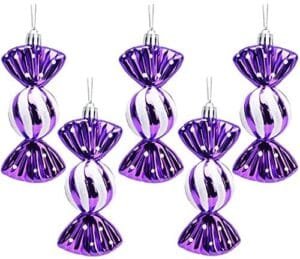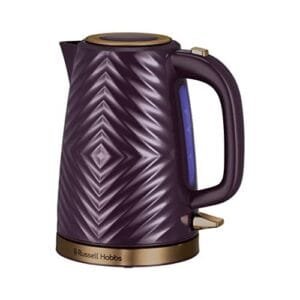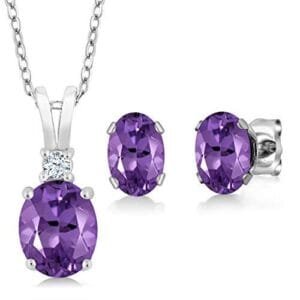The Colour Psychology of Purple: Unveiling Its Meaning and Influence
Purple holds a unique position among the spectrum of colours due to its complex associations & cultural significance #inspirationispurple
Introduction to Colour Psychology
Colour psychology is a fascinating field that explores the interplay between colours and human emotions, perceptions, and behaviours. The essence of colour psychology lies in understanding how different hues can evoke specific feelings and reactions within individuals and society as a whole. Colours are inherently powerful communicators, influencing our moods, choices, and even relationships. For instance, warm colours such as red and yellow tend to generate feelings of warmth and energy, while cool colours like blue and green are often associated with calmness and tranquillity.
The study of colour psychology reveals that colours can impact decision-making processes, suggest various meanings, and even shape branding strategies. Different cultures ascribe varied significance to colours, indicating that the emotional response to a particular hue can be both universal and situational. This duality makes the study of colour psychology essential for various fields, including marketing, art, and design, where understanding the audience’s response to colour can greatly enhance effectiveness.
Purple holds a unique position among the spectrum of colours due to its complex associations and cultural significance. As a blend of warm and cool tones, purple often embodies contrasting traits, representing both creativity and stability. This multifaceted nature of purple adds to its appeal in various contexts, from fashion to interior design. By delving deeper into the implications of purple within colour psychology, one can appreciate its ability to influence emotions, inspire creativity, and project a sense of luxury or nobility.
In paving the way for a comprehensive exploration of purple’s meaning and influence, one must first grasp the foundational principles of colour psychology. Understanding how colour impacts human experience provides valuable insights into the intricate relationship between visual stimuli and emotional well-being.
The Historical Significance of Purple
The historical significance of the colour purple dates to ancient civilisations, where it became synonymous with royalty, luxury, and nobility. The rarity of purple dye was a primary reason for its association with wealth and status. It was traditionally derived from the murex shellfish, which required thousands of shells to produce just a small amount of dye, making it extremely valuable and accessible only to the elite. This labour-intensive process meant that purple garments were exclusive and often reserved for emperors, kings, and religious figures.
In ancient Rome, purple was so closely linked to imperial authority that laws prohibited its use by anyone outside of the ruling class. The term “royal purple” even solidified the colour’s connection to monarchy. In other cultures, such as that of the Byzantine Empire, purple continued to represent divine right and royal lineage, with emperors often draped in garments of this revered hue during significant ceremonies.
Moreover, purple’s significance transcends geography, appearing in the ancient cultures of Egypt, where it was worn by pharaohs, and in Asia, where purple represented wealth and nobility. In Medieval Europe, the popularity of the colour continued, as dye techniques advanced, broadening its appeal to the affluent. Although less exclusive than in antiquity, purple maintained its image as a colour of prestige into the Renaissance, when it became a symbol of the Catholic church’s power, often seen in the robes of high-ranking clergy. As a result, the historical context depicts purple not merely as a colour, but as a powerful signal of social standing and cultural significance throughout various eras and societies.
Purple is not merely a colour, but a powerful signal of social standing & cultural significance throughout various eras & societies #inspirationispurple
The psychological effects of purple extend beyond mere visual appeal; they encompass a range of emotional and cognitive responses #inspirationispurple
The Psychological Effects of Purple
Purple has long been a colour of intrigue, carrying significant psychological implications that resonate across various cultures and contexts. Historically associated with royalty, luxury, and power, purple is often viewed as a hue that evokes creativity and imagination. When individuals are exposed to purple, they may experience heightened levels of inspiration, encouraging deep thinking and artistic expression. Studies have indicated that environments infused with purple can lead to enhanced cognitive performance, particularly in analytical tasks, suggesting that this colour might stimulate brain activity related to problem-solving.
Furthermore, purple signifies spirituality and is frequently linked to the mystical and the divine. Many spiritual practices incorporate purple in their rituals due to its calming and meditative properties. The presence of this colour in a space can create an ambiance conducive to reflection and introspection, facilitating a deeper connection with one’s inner self. The serene aspect of purple helps in reducing stress and anxiety levels, promoting a sense of tranquillity. Research has shown that individuals surrounded by purple tend to report feelings of peace and comfort, suggesting that this colour might serve as an emotional anchor in chaotic environments.
Moreover, purple’s role in emotional regulation cannot be overlooked. It is known to inspire a sense of balance between the physical and spiritual realms, making it particularly beneficial for individuals seeking emotional healing. The colour’s associations with calmness also suggest that it can serve as a psychological buffer against negative emotions, ultimately fostering a more positive mental state.
The psychological effects of purple extend beyond mere visual appeal; they encompass a range of emotional and cognitive responses, underlining the colour’s profound influence on human behaviour and mental well-being.
The Variations of Purple and Their Meanings
Purple is a versatile colour that encompasses a spectrum of shades, each with its distinct meanings and psychological effects. The lighter shades, such as lavender, evoke feelings of tranquillity and calmness. Lavender is often associated with femininity and grace, frequently used in spaces designed for relaxation, such as bedrooms and spa environments. Its soothing presence encourages a serene atmosphere, making it a popular choice in interior design and art that aims to promote peace.
Moving to a deeper hue, violet pulsates with creativity and spiritual awareness. Associated with nobility and ambition, violet may inspire introspection and contemplation. Artists often utilise violet to signify emotional depth in their work, creating a striking juxtaposition against lighter backgrounds. This shade appears frequently in logos and branding to convey luxury and sophistication, appealing to high-end markets.
Plum, a rich and more dramatic variation of purple, encapsulates both warmth and richness. It is often perceived as empowering, promoting a strong sense of individuality and confidence. In branding, plum is utilised to attract attention while maintaining a sense of tranquillity, striking a balance that is both bold and approachable. Moreover, plum’s versatility allows it to be effective in various design contexts, from sophisticated event styling to modern home decor.
Each shade of purple can evoke different emotions and associations, from the calmness of lavender to the richness of plum. In design, understanding these nuances is crucial for implementing purple effectively to influence psychological responses. The careful selection of a specific shade can markedly alter the mood and effectiveness of visual communication across diverse media.
The careful selection of a specific shade of purple can markedly alter the mood & effectiveness of visual communication across diverse media #inspirationispurple
The psychological effects of purple extend beyond mere visual appeal; they encompass a range of emotional and cognitive responses #inspirationispurple
Purple in Branding and Marketing
Purple, often associated with luxury, creativity, and spirituality, plays a significant role in branding and marketing strategies. Companies frequently incorporate this enigmatic colour to convey certain values, promote emotional connections, and differentiate themselves in a competitive marketplace. For instance, the use of purple can evoke feelings of elegance and sophistication, making it an ideal choice for brands targeting a high-end demographic.
A notable example is the beauty industry, where brands like Sephora and Ulta utilise purple in their branding to create a sense of exclusivity. The colour purple is not only aesthetically pleasing but also has been shown to stimulate the imagination, making it appealing to younger consumers looking for innovative and trendy products. By weaving purple into their logos, packaging, and advertising, these companies craft a narrative that resonates with their target audiences, whether through luxury skincare items or fashionable makeup collections.
In the technology sector, companies such as Yahoo and T-Mobile have effectively leveraged purple to symbolise creativity and energy, essential attributes in an industry that values innovation. Yahoo’s purple logo conveys a sense of fun and individuality, aligning with its goal of fuelling creativity among its users. Similarly, T-Mobile employs purple as a core component of its brand identity to foster a connection with younger, tech-savvy consumers seeking vibrant and dynamic services. The use of purple in their marketing communications has fostered a strong emotional bond with their audience, reinforcing brand loyalty and enhancing customer engagement.
Overall, purple is more than just a colour; it is a powerful tool in branding and marketing strategies that can create emotional connections, attract specific demographics, and enhance brand identity. By understanding the psychological implications of purple, brands can more effectively communicate their values and stand out in a crowded marketplace.
Purple in Art and Fashion
Purple has long held a significant place in the realms of art and fashion, representing creativity, luxury, and spirituality. Artists and designers have embraced this rich hue to convey various themes and evoke emotional responses. In the art world, notable figures such as Vincent van Gogh and Gustav Klimt have celebrated purple in their works. Van Gogh’s “Starry Night” vibrantly showcases the interplay of blue and purple, illustrating the beauty of the night sky and stirring a sense of wonder and introspection. Klimt’s use of purple in “The Kiss” highlights sensuality and emotional depth, demonstrating how this colour can enhance narratives and provoke thought.
The fashion industry, too, has a strong relationship with purple. Designers like Yves Saint Laurent and Gucci have utilised shades of purple in their collections, often associating the colour with opulence and unique expression. Purple garments can convey confidence and an artistic spirit, appealing to individuals seeking to assert their individuality. The complexity of purple, ranging from deep violets to lighter lavenders, allows for versatility in design, enabling its integration into a wide variety of fashion styles—from the timeless elegance of haute couture to vibrant streetwear.
Moreover, purple’s association with creativity makes it a popular choice among contemporary artists and fashion designers. This colour can inspire new ideas and push boundaries, creating a canvas for innovative designs and artistic expressions. The resurgence of purple in modern fashion trends reflects a growing appreciation for its unique character and the impact it has on both visual culture and personal identity. By exploring the aesthetics of purple, individuals can appreciate its layered meanings and the ways in which it influences both art and fashion.
The complexity of purple allows for versatility in design & fashion styles—from the timeless elegance of haute couture to vibrant streetwear #inspirationispurple
Purple's diverse meanings serve as a reminder of the complex social and cultural dynamics that shape our perceptions of colour #inspirationispurple
Cultural Associations with Purple Around the World
Purple is a colour that resonates differently across various cultures, each attributing unique significance to its hues. In many Western societies, purple is often associated with royalty and nobility. Historically, the dye used to create purple textiles was exceptionally rare and expensive, making it a status symbol among the elite. This perception elevates purple, positioning it as a colour embodying prestige and luxury.
In contrast, the usage of purple varies significantly in Eastern cultures. For instance, in Thailand, purple is linked to mourning. The colour is traditionally worn by widows at funeral ceremonies. This association may seem jarring to those in cultures where purple signifies opulence; however, it highlights how cultural contexts can reshape the meanings derived from a single colour.
Similarly, in Brazil, purple is connected with the religious connotation of spirituality. It is frequently used in rituals, suggesting a bridge between the material world and the spiritual realm. The colour embodies mysticism and depth, inviting individuals to explore their spiritual connections. In this sense, purple transcends mere aesthetic appreciation, embedding itself within religious practices and beliefs.
Moreover, purple plays a role in social movements worldwide. Notably, the women’s suffrage movement adopted purple as a key colour. In this context, the hue symbolises dignity and justice, reflecting the struggle for equality and rights. This symbolism showcases purple’s ability to unify collective aspirations and assert identity within socio-political frameworks.
Overall, purple’s diverse meanings serve as a reminder of the complex social and cultural dynamics that shape our perceptions of colour. Each cultural association enriches the colour’s identity, allowing individuals to understand differing interpretations that purple encapsulates in various parts of the world.
Incorporating Purple into Your Life
Purple can significantly enhance various aspects of life when incorporated thoughtfully. Individuals looking to embrace the positive aspects of purple can do so in numerous areas, including home décor, fashion choices, and personal branding.
In home décor, integrating purple can create a calming and inviting atmosphere. One way to do this is by selecting purple accents such as cushions, throws, or artwork. Soft lavender tones can work exceptionally well in bedrooms to induce relaxation, while deeper shades like plum can add richness to a living room or study. When choosing purple for your walls, it is wise to consider the room’s lighting; darker purples may feel too overpowering in dim spaces, whereas lighter shades can brighten up a room, promoting a serene environment.
When it comes to fashion choices, purple can be an empowering addition to one’s wardrobe. A touch of purple in clothing, be it a flowing dress or a sleek tie, can convey confidence and creativity. Individuals may opt for accessories, such as scarves or handbags, to introduce the colour subtly without overwhelming their overall look. Moreover, the versatility of purple allows it to be paired with various other colours; combining it with gold can evoke a sense of luxury, while pairing it with yellow or green may introduce a refreshing, fun vibe.
For personal branding, purple can be a powerful tool in establishing a memorable presence. Whether on social media platforms or professional websites, incorporating purple in logo design and imagery can convey attributes like innovation and creativity. However, it is essential to remain aware of purple’s dual nature; while it can inspire and attract, overuse may lead to feelings of restlessness or elitism. Striking a balance is key to maximising the benefits while minimising potential drawbacks when incorporating purple into everyday life.
Striking a balance is key to maximising the benefits while minimising potential drawbacks when incorporating purple into everyday life #inspirationispurple
Celebrate & harness the positive attributes of purple by cultivating spaces & experiences that reflect our values and aspirations #inspirationispurple
Conclusion: Embracing the Power of Purple
Throughout this exploration of the colour psychology of purple, we have delved into its rich history, multifaceted meanings, and profound impact on human emotions and behaviour. Purple, often associated with luxury, creativity, and spirituality, has a unique ability to evoke feelings of calmness while stimulating mental activity. Its positioning between the passionate red and serene blue offers a harmonious blend that can inspire individuals and foster a deeper connection to their innermost thoughts and aspirations.
Understanding the implications of colour psychology, particularly concerning purple, empowers individuals to make more informed choices about their surroundings. Whether it is selecting the perfect shade for a personal space, curating a wardrobe, or considering the overall design of a brand, a conscious integration of purple can create a specific emotional atmosphere. By embracing purple, people can enhance their creative endeavours, nurture their spiritual journeys, and nurture social connections, thus enriching their overall well-being.
Furthermore, acknowledging the influences of purple in our daily lives allows us to celebrate its beauty and significance. From the soothing lavender hues of a quiet retreat to the bold and striking purples found in artwork and fashion, this colour serves as a reminder of the diverse experiences and emotions it can represent. It encourages individuality while promoting a sense of belonging and community. As we incorporate purple into our lives, we may find ourselves inspired to embrace creativity, uplift our spirits, and deepen our connection with the world around us.
The study of colour psychology broadens our understanding of how colours like purple can shape our experiences and interactions. By recognising this power, we are invited to celebrate and harness the positive attributes of purple, cultivating spaces and experiences that reflect our values and aspirations.

AI Generated Content includes
First Draft Text via HOSTINGER AI WRITER
Post Images via CANVA Magic Media™

Edited, Styled & Published by
Phil







